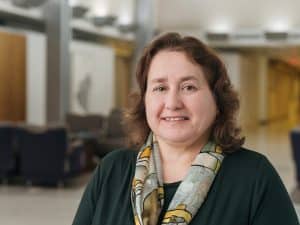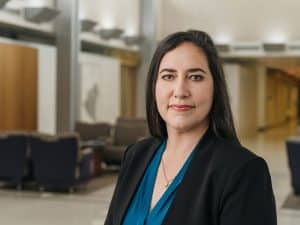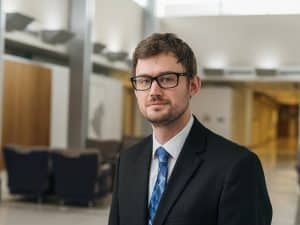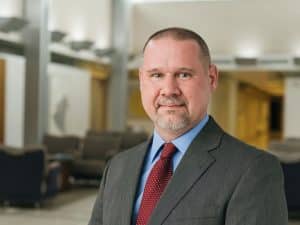Faculty Updates
FROM TRAINEE TO FACULTY
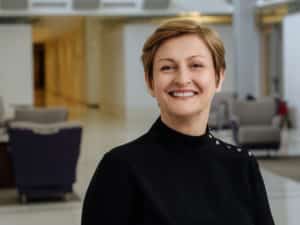
Olena Shtanko, PhD, started at Texas Biomed in 2011 as a post-doctoral fellow, and has been an independent Staff Scientist for the past five years. When Texas Biomed began recruiting for a new virology faculty member, Dr. Shtanko successfully competed with external applicants, becoming Texas Biomed’s newest Assistant Professor in April. Her research focuses on Ebola virus, as well as other emerging pathogens of pandemic concern, such as Nipah virus. In 2021, she received more than $1 million in NIH grants to fund her Ebola research, which is carried out in the biosafety level 4 laboratory.
TB EXPERT JOINS FACULTY
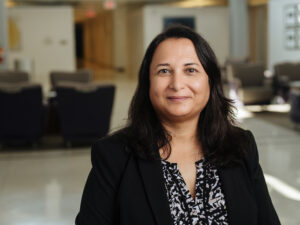
Associate Professor Smriti Mehra, PhD, is on the trail of a killer. She is seeking to understand how tuberculosis (TB) evades the body’s immune system, hiding in the lungs often for decades, before becoming active and causing serious illness. She is also studying modified vaccines and new therapies to prevent and treat TB, with a particular interest in the immune signaling “IDO pathway.” In some cancer patients, inhibiting IDO improves the body’s immune response and shrinks tumors. Dr. Mehra and her team are investigating if inhibiting IDO can also help fight active and latent TB. Dr. Mehra officially joined Texas Biomed in August 2021, bringing her experience researching TB in nonhuman primates at Tulane National Primate Research Center.
Congratulations to the research, veterinary and pathology faculty who have been promoted:
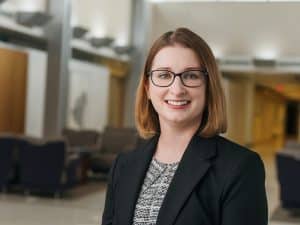
LEAVING A LEGACY OF DISCOVERY, MENTORSHIP
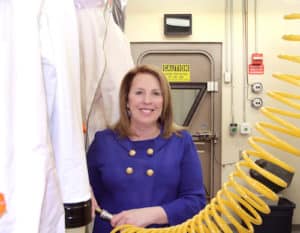
Professor Jean Patterson, PhD, retired this spring after more than four decades in scientific research. An expert in emerging viral diseases, Dr. Patterson was recruited to Texas Biomed in 1996 to chair the Institute’s virology department. She did that and much more, spearheading the design and construction of Texas Biomed’s biosafety level (BSL) 4 laboratory, which went hot in 2000 as the first independently operated BSL-4 in the country.
“A BSL-4 had never been built outside of the federal government, or West of the Mississippi for that matter,” Dr. Patterson says. “We said, ‘Okay, we’ll build one.’”
The key to success was simplicity. Every system must have a backup, so the simpler and more streamlined, the safer and better. This approach has continued to work well for more than 20 years, enabling researchers to safely study pathogens for which there are no cures.
During her career, Dr. Patterson discovered a virus that infects Leishmania parasites, which infect 1 million people a year, and she has helped develop and/or test successful vaccines against Ebola virus, Lassa fever virus and Zika virus. A respected leader in the biodefense field, Dr. Patterson has served on national advisory boards and committees for the Department of Defense, Homeland Security and American Society for Microbiology.
Students and researchers whom she mentored appreciated her calm leadership style: nothing was ever a crisis, just a problem to be solved. If an experiment didn’t work, she asked them “What did you learn from it?” And, she imparted the same advice given to her: “You can never give enough credit to someone else.”
One of her mentees was Ricardo Carrion, Jr., PhD, who now directs Texas Biomed’s Maximum Containment Contract Research.
“Jean’s reputation for being a fair mentor spread and often students from other labs would seek her out for advice, encouragement and support,” Dr. Carrion says. “That same approach of providing people what they need to succeed transcended all aspects of her career. Jean stood behind her faculty from very junior scientists to senior staff.”
In her new Emeritus role, Dr. Patterson will remain involved with Texas Biomed and select research projects, and is looking forward to more time for family and travel.
